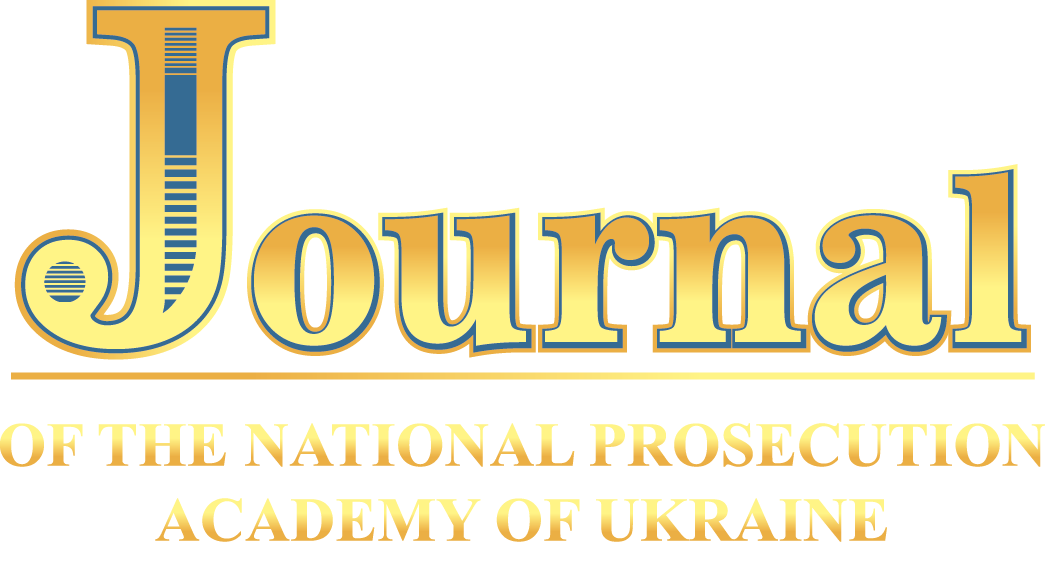| (2019) 2 Visn. Nac. akad. prokur. Ukr. 7–15 | |
| https://doi.org/10.34285/visnyknapu2019.02.007 | |
| Title of the article | The Military Jurisdiction in the Italian Judiciary System |
| Author(s) | MAURIZIO BLOCK General Military Prosecutor, Supreme Court of Cassation, Rome, Italy |
| Short title of the journal (ISSN) |
Visn. Nac. akad. prokur. Ukr. |
| Year | 2019 |
| Issue | 2 |
| Pages | [7–15] |
| Language | English |
| Abstract | In the evolution of the legal systems it happens that a state, while imposing new rules for the Armed Forces, sets up laws also in military judiciary field, in order to grant independence also to military courts. Such process has often entailed the abolition of military courts in some advanced European democratic countries like France, Germany, Portugal, Czech Republic and others. Nevertheless, this did not happened in Italy. The purpose of the article – to review the foundations of the Italian military judiciary in the light of its evolution over the past 50 years. In the article researches the historical and social preconditions that led to the formation of the foundations of an independent military system in the Republic of Italy. The Italian Constitution adopted in 1948 it is stated that military courts in peace time have jurisdiction only over military personnel serving who commit military crimes. The Constitution stated also that jurisdictional function is exercised by ordinary magistrates established and regulated by the rules on the judiciary and that the special jurisdiction as the military jurisdiction has the same guarantees of independence as ordinary jurisdiction. However, the guarantees granted by the Italian Constitution were not immediately applied. Actually a law adopted on 1941 continued to apply. The military judiciary was not independent at that stage. The most glaring example of the subordination can be seen in the fact that the investigating judge was under the military prosecutor and that all judges/ prosecutors were under Military General Prosecutor at the Tribunale Supremo. So it was felt necessary to improve the level of the autonomy and independence of military judges from the military hierarchy and to establish the equation of military judiciary and the ordinary one, according moreover with the constitutional dictate that had established it since 1948. The reason for this reform lay in the fact that the military defendant must be entitled to be subject to a fair trial and judged by an independent judge, free from possible pressure from the military establishment. A new law was adopted in 1981 and stated new principles and rule to solve such needs. Another important event happened in 1989 when a new Code of Criminal Ordinary Procedure entered into force. Military courts came to opinion that the new common procedure should to be applied to military judicial sector. This situation accelerated the process of homogenization between the ordinary and military courts. Recently the current Government wishes to improve the competence of the military courts setting a further number of military crimes in order to reduce also the number of the ordinary criminal proceedings. This reform would allow us to attribute utility to military Courts and return them a useful social role but we are waiting for the approval and there is a strong uncertainty about this. |
| Keywords | military jurisdiction; judiciary; military court; legislation of the Republic of Italy. |
| References | REFERENCES List of legal documents Legislation 1. Codice Dell’ordinamento Militare: decreto legislativo 15.03.2010 № 66. URL: (accessed: 15.05.2019) (in Italian). 2. Codice di Procedura Penale: Decreto Presidente della Republica, 22.09.1988 № 47 (сome into force 24.10.1989). URL: (accessed: 15.05.2019) (in Italian). 3. Codice Penale Militare di Pace e Codice Penale Militare di Guerra: regio decreto 20.02.1941 № 303. URL: (accessed: 15.05.2019) (in Italian). 4. Constitution of the Italian Republic. URL: (accesed: 20.05.2019) (in English). 5. Modifiche All’ordinamento Giudiziario Militare di Pace: legge 07.05.1981 № 180. URL: (accessed: 15.05.2019) (in Italian). 6. Sospensione Anticipata del Servizio Obbligatorio di Leva e Disciplina dei Volontari di Truppa in Ferma Prefissata, nonchе Delega al Governo per il Conseguente Coordinamento con la Normativa di Settore: legge 23.08.2004 № 226. URL: (accessed: 15.05.2019) (in Italian). Websites 7. ‘Georges Clemenceau’ Wikiquote accessed 15 May 2019 (in English). |
download .PDF



